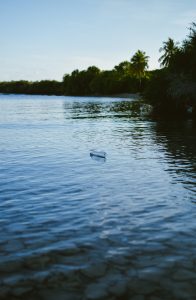Sustainable “plastic” is harder than bone
A team at the Massachusetts Institute of Technology (MIT) has created a plant-derived “plastic” that is harder than bone and aluminum.
CNCs
 Within all plants and algae, there is cellulose nanocrystals or CNCs. According to the MIT, “At the nanoscale, CNCs are stronger and stiffer than Kevlar. If the crystals could be worked into materials in significant fractions, CNCs could be a route to stronger, more sustainable, naturally derived plastics.”
Within all plants and algae, there is cellulose nanocrystals or CNCs. According to the MIT, “At the nanoscale, CNCs are stronger and stiffer than Kevlar. If the crystals could be worked into materials in significant fractions, CNCs could be a route to stronger, more sustainable, naturally derived plastics.”
A team at MIT mixes CNCs with a synthetic polymer, making a mixture that is up to 90% organic.
The team has learned to 3D print this material and has tested it in many forms. “They also machined the composite into the shape of a tooth to show that the material might one day be used to make cellulose-based dental implants—and for that matter, any plastic products—that are stronger, tougher, and more sustainable,” said GNN.
Testing, testing
After the materials are mixed, synthesized into plastic, and molded the product was put through multiple stages of testing to see its strength. Using tools, they initiated microcracks and found the material was strong enough to resist the cracks.
The material’s hardness is somewhere in between conventional plastic and metal such as aluminum.
“Going forward, the team is looking for ways to minimize the shrinkage of gels as they dry. While shrinkage isn’t much of a problem when printing small objects, anything bigger could buckle or crack as the composite dries,” according to MIT.
Sources: Good News Network, MIT
Images: Sofiya Levchenko, Abyan Athif
 High-quality writing is very important to members of the Global Goodness team. But no one’s perfect, so we always use Antidote.
High-quality writing is very important to members of the Global Goodness team. But no one’s perfect, so we always use Antidote.
Encourage us if you like positive stories!





